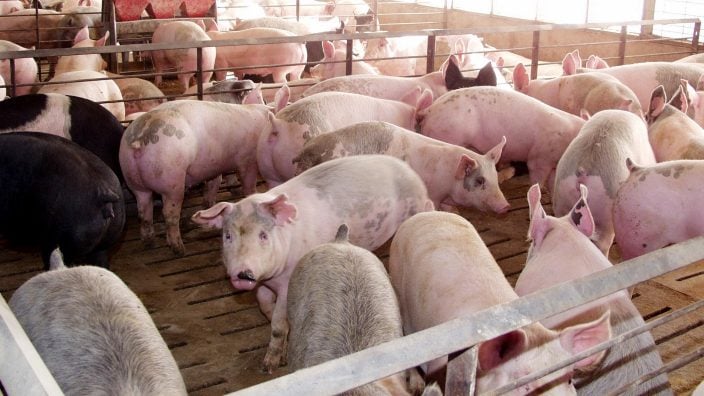Legal with Leah: The questions around data centers
Leah Curtis joins this Legal with Leah to talk about what data centers mean for local communities and how to stay engaged in the development process
Read MoreThe U.S. Environmental Protection Agency recently denied a request to transfer certain regulatory responsibilities covering Concentrated Animal Feeding Operations from Ohio EPA to the Ohio Department of Agriculture. However, this denial didn’t change a thing about the livestock permitting process in the state.
A request by the state of Ohio to transfer certain regulatory responsibilities covering Concentrated Animal Feeding Operations from the Ohio Environmental Protection Agency to the Ohio Department of Agriculture was recently denied by the U.S. Environmental Protection Agency. Anti-animal agriculture groups claimed this as a win but, in reality as Ohio Farm Bureau Policy Counsel Leah Curtis lays out in this Legal with Leah, it didn’t change a thing about the livestock permitting process in Ohio.
Ty Higgins [00:00:00] A request by the state of Ohio to transfer certain regulatory responsibilities covering concentrated animal feeding operations from the Ohio EPA to the Ohio Department of Agriculture was recently denied by the U.S. EPA. Anti animal agriculture groups claimed this as a win, but in reality, it didn’t change a thing about the livestock permitting process in Ohio. Joining us to talk more about it is Leah Curtis, policy counsel with Ohio Farm Bureau for this Legal with Leah.
Ty Higgins [00:00:28] So this has really been something that’s over 20 years in the making. And I say this tongue in cheek. The anti animal livestock groups that I talked about earlier, really, this is a nothing burger, isn’t it?
Leah Curtis [00:00:42] So around 20 years ago, the General Assembly passed this law that sought to transfer authority from the Ohio EPA to the Ohio Department of Agriculture for NPDES permits. So those, if someone is not familiar. NPDES permits are required under the Clean Water Act to discharge pollutants into a water of the United States. So today we’d hear about those more from places like water treatment plants or factories that have some sort of discharge. So concentrated animal feeding operations or CAFOs, as we typically call them under the law, were required to get two permits from the Department of Ag here in Ohio. They get a permit to install, which is a design permit and then a permit to operate, which is sort of their management practices, all the things they have to do while they’re actually operating. And so the legislature was sort of seeking to, I believe, streamline that process. You know, if they have to get three permits, let’s put all those permits in one place. And so if they needed an NPDES permit, they would get it from the same place as they get their other permits.
Ty Higgins [00:01:40] So that put the ball in ODA’s court back in the early 2000s.
Leah Curtis [00:01:45] Yes. So then ODA submits an application to US EPA to have that authority transferred. That’s kind of the process they had to go through. But US EPA never takes any final action on that application, so they go back and forth over all of these years on requirements but never come to any resolution. Legitimately, years and years. At one point the state sends a letter to U.S. EPA. It takes two years to get a formal response to that letter. All the meanwhile, NPDES permits continue to be handled by Ohio EPA because, again, that authority has never been transferred. It’s never been granted by the U.S. EPA. So Ohio EPA continues to operate and handle those NPDES permits.
Ty Higgins [00:02:26] And all of this isn’t happening in a vacuum. A lot can change in two decades.
Leah Curtis [00:02:31] Yes, so other things are happening. The rest of the world did not stop while this was going on. And so when we kind of started this process, the Clean Water Act, the rules under it essentially required that CAFOs had to have an NPDES permit because there could be a possibility, no matter how small that possibility was, that they might discharge to a water of the United States. CAFOs however, generally are not allowed to discharge. This permit was basically saying like, well, if you might do it, you need to have a permit, if there’s any possibility you could and you might violate that that requirement. So eventually, court hearings happened, litigation happens. A federal court rules that a farm cannot be required to get an NPDES permit on this idea that they might have a discharge under the Clean Water Act rules. So that kind of changes the game a little bit. Generally, farms are not getting NPDES permits because they are not allowed to discharge and so therefore they can’t have this requirement of a plan to discharge permit.
Ty Higgins [00:03:30] So the authority was never transferred. CAFOs aren’t allowed to discharge anyway, and the nature of the federal rules have all changed in the meantime. So why are we hearing about this now?
Leah Curtis [00:03:40] Well, again, after 20 some years, the U.S. EPA finally issued a formal rejection of the Department of Agriculture’s request to transfer this authority. Now this comes after a 2019 inspector general report that basically said you have to take action on these applications, as well as a number of other citizen petitions that have been filed and just sitting around. And then in 2021, the inspector general follows up again and says, hey, you still have to follow up on this ODA request to transfer. You still have not responded to that. So here in the last couple of weeks, we’ve seen U.S. EPA finally provide that final resolution and say they are rejecting the transfer application.
Ty Higgins [00:04:22] In that final resolution, there is still a little bit of an opening there for this process to be transferred in the future.
Leah Curtis [00:04:29] Yes. Essentially they could always try again under the requirements in the suggestions of U.S. EPA that may require some changes to our state law or something. So, they can always do that again. They can always go through that process again. And after that inspector general report, we would assume that U.S. EPA would probably work on some better deadlines and maybe not take 20 years before we have that resolution.

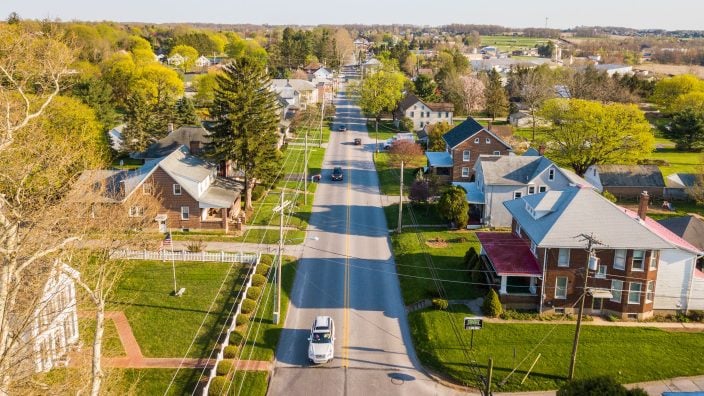
Leah Curtis joins this Legal with Leah to talk about what data centers mean for local communities and how to stay engaged in the development process
Read More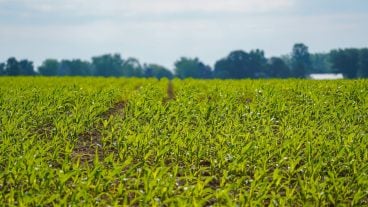
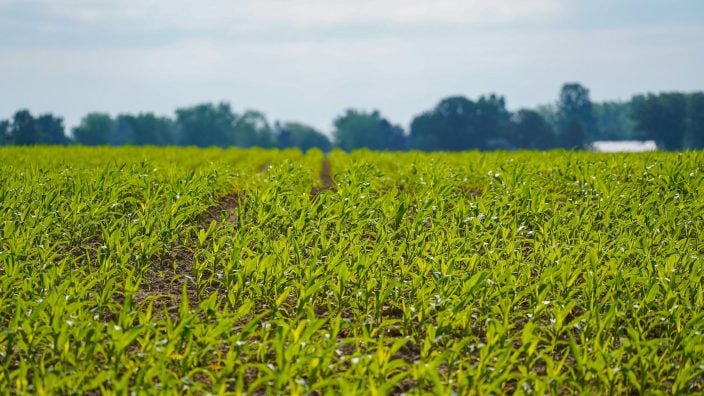
Ohio Farm Bureau advocated for a change in the law to allow family members and employees to handle pesticides while under the supervision of a licensed applicator. The rules around HB 10 are being finalized.
Read More

Four property tax reform bills were signed into Ohio law at the end of 2025. Ohio Farm Bureau Associate General Counsel Leah Curtis breaks down the bills and what the changes mean for Ohioans.
Read More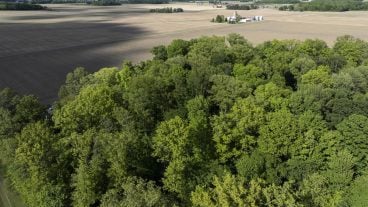

Learn what the requirements are to legally fly a drone in Ohio as well as steps the Ohio Legislature has taken in terms of security concerns.
Read More

In 2025, about 21 counties are going through a reappraisal or update, and because Ohioans pay taxes one year behind, they will see new property tax bills in January 2026.
Read More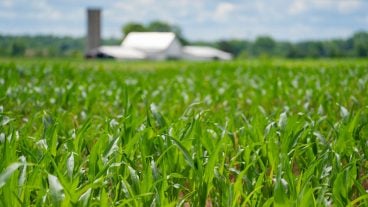
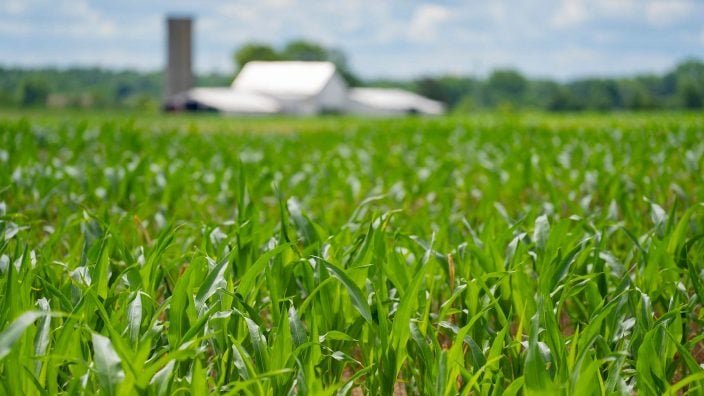
Any unlicensed handlers who use restricted use pesticides will need to have additional training. Farm Bureau will be working on legislation to give employers a choice on how to provide training.
Read More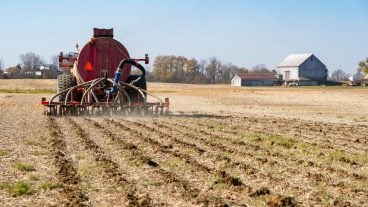
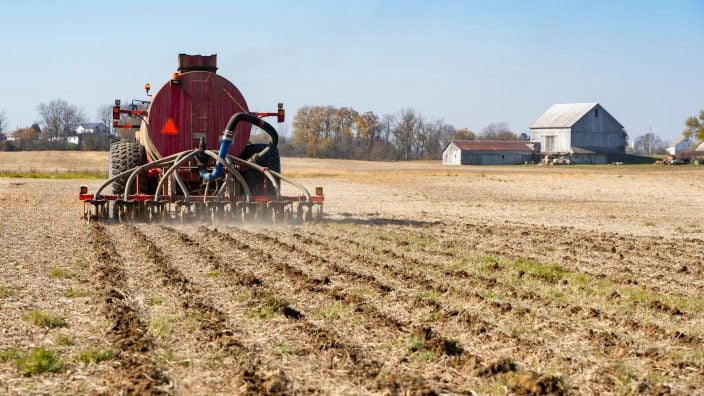
Current Agricultural Use Value is often discussed as a farmland preservation tool, but there are some other tools in the law that landowners can consider.
Read More

Update: As of Feb. 27, 2025, the Financial Crimes Enforcement Network announced no fines, penalties or enforcement action will be taken against companies based on failure to file or update BOI by March 21.
Read More

Update: As of Feb. 27, 2025, the Financial Crimes Enforcement Network announced they would not issue any fines or penalties or take enforcement action against companies based on failure to file or update beneficial ownership information reports by the March 21, 2025, deadline.
Read More

Update: As of Feb. 27, 2025, the Financial Crimes Enforcement Network announced they would not issue any fines or penalties or take enforcement action against companies based on failure to file or update beneficial ownership information reports by the March 21, 2025, deadline.
Read More